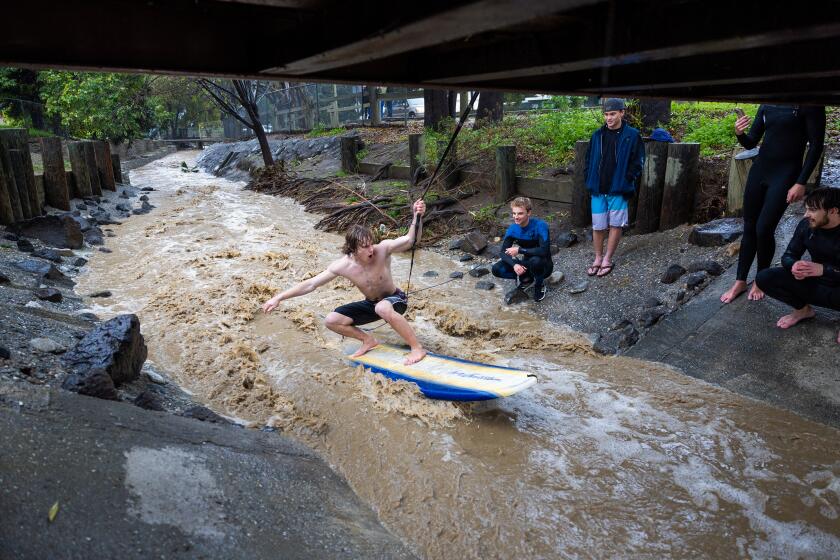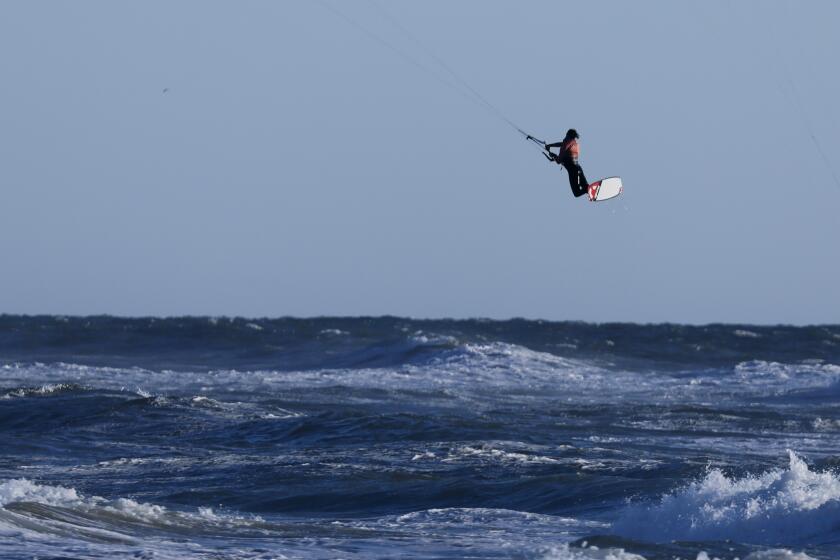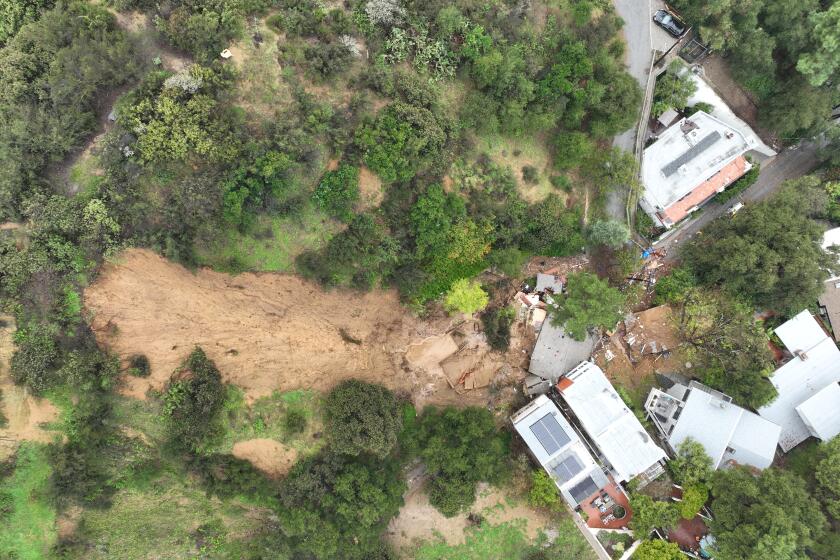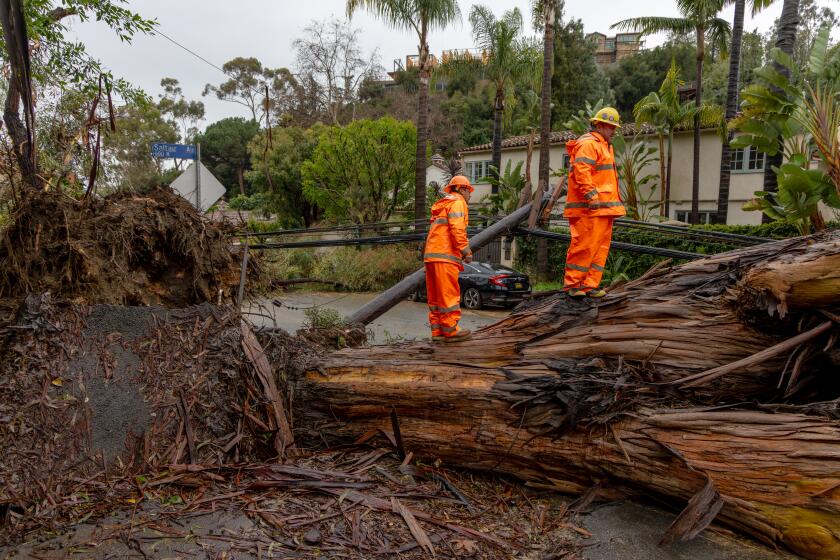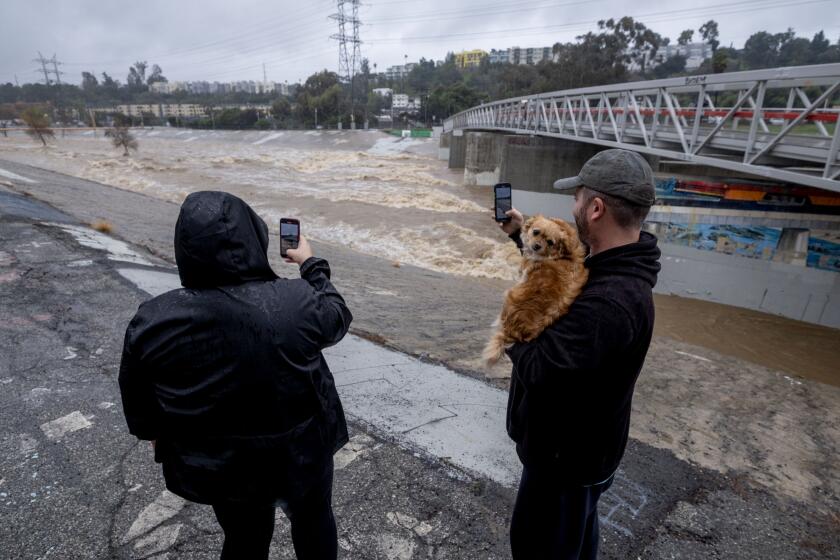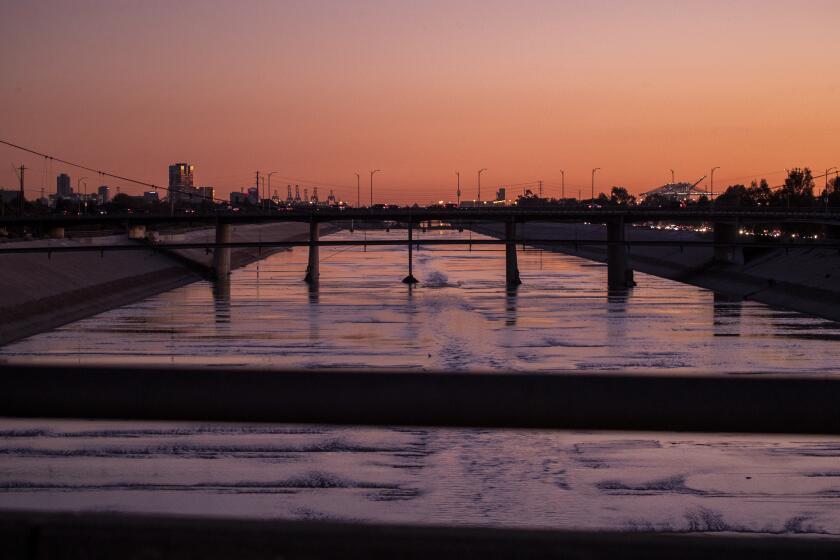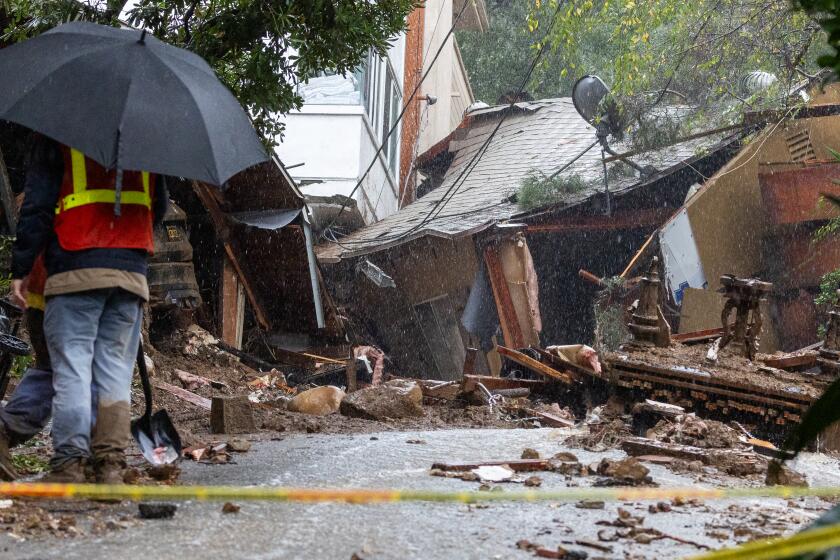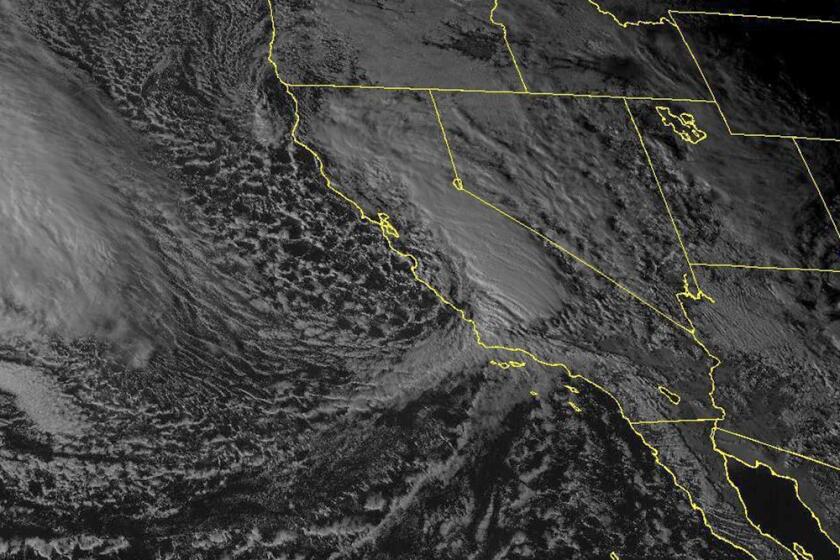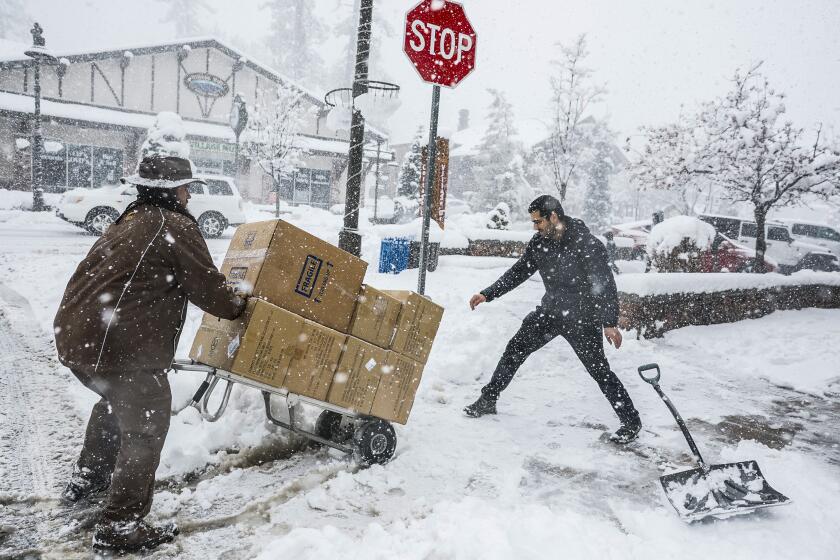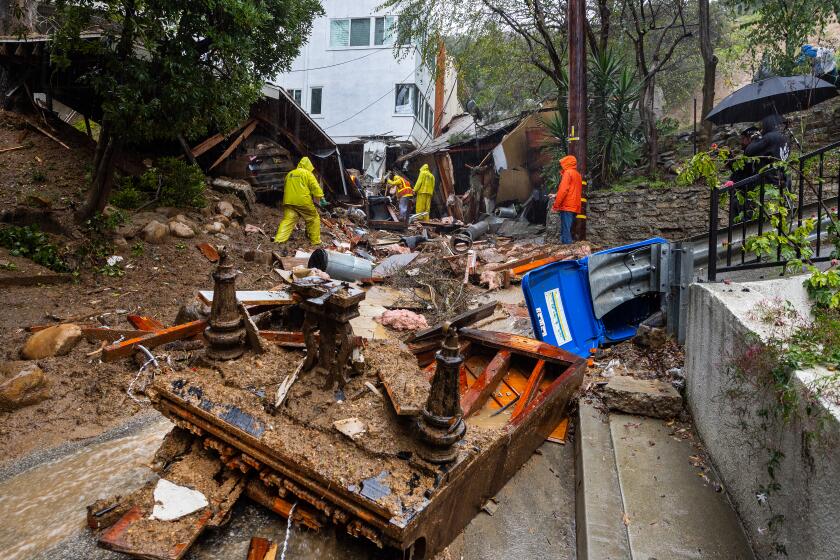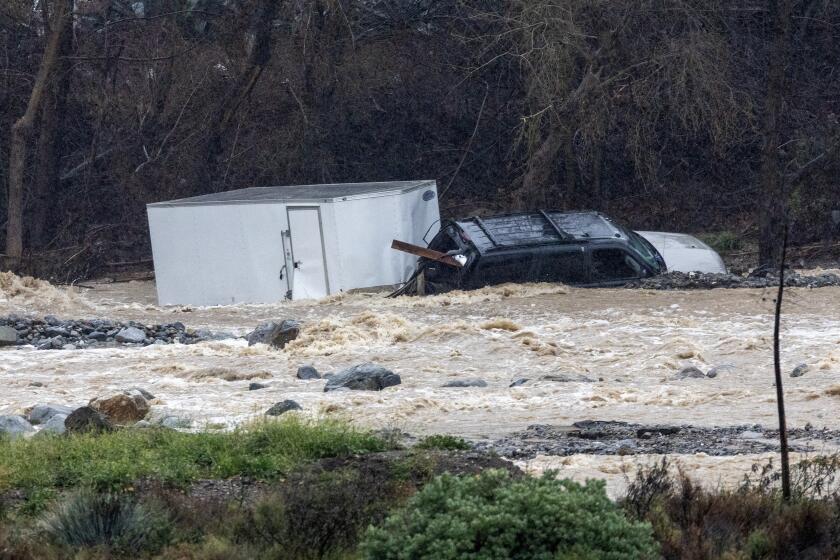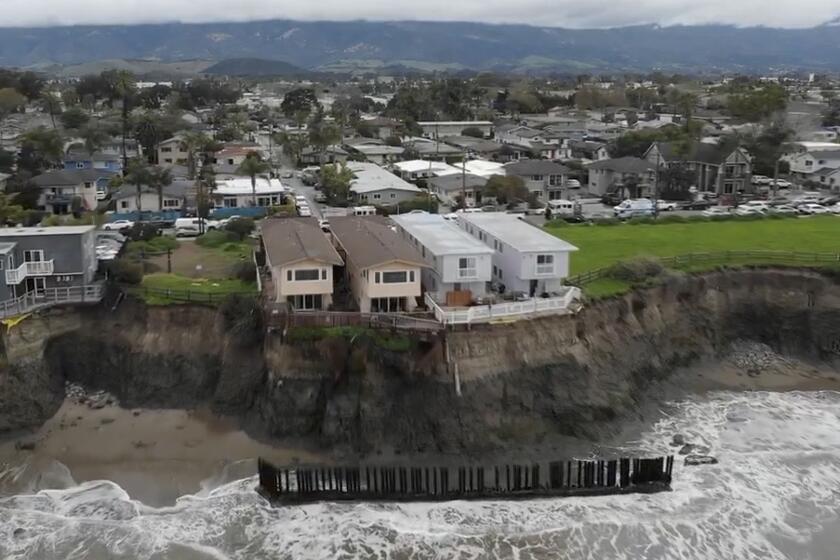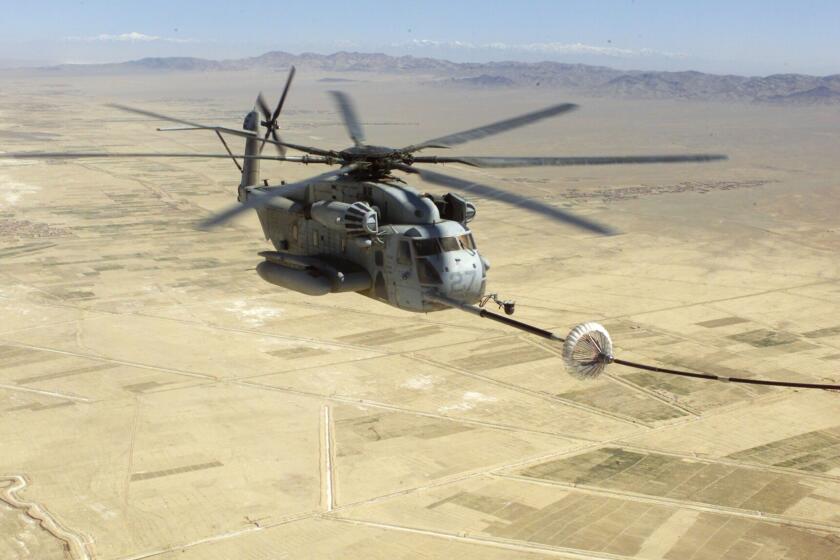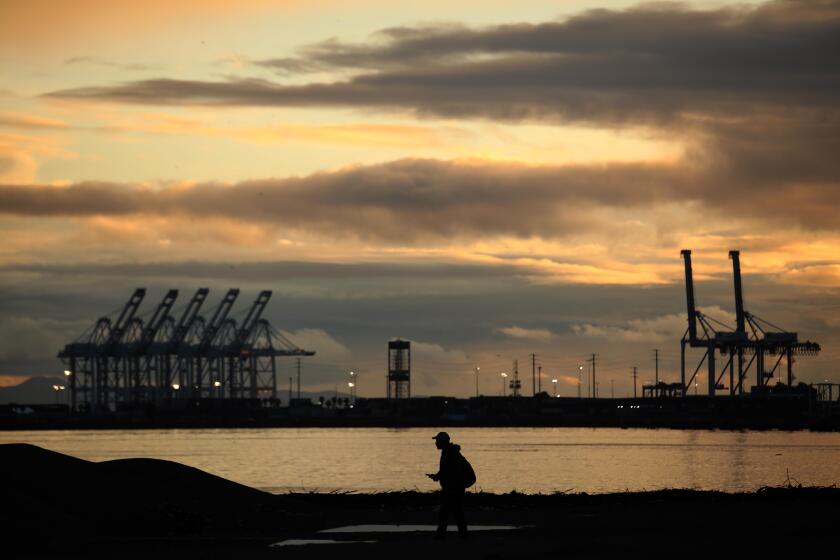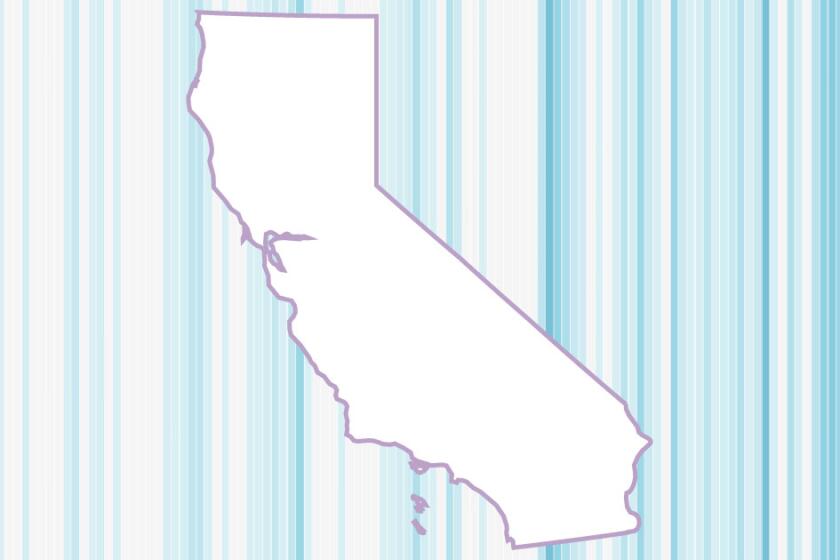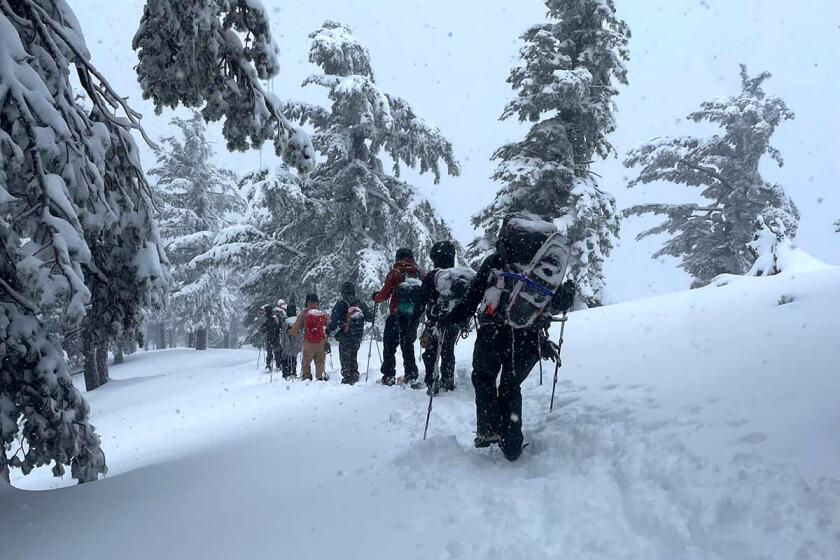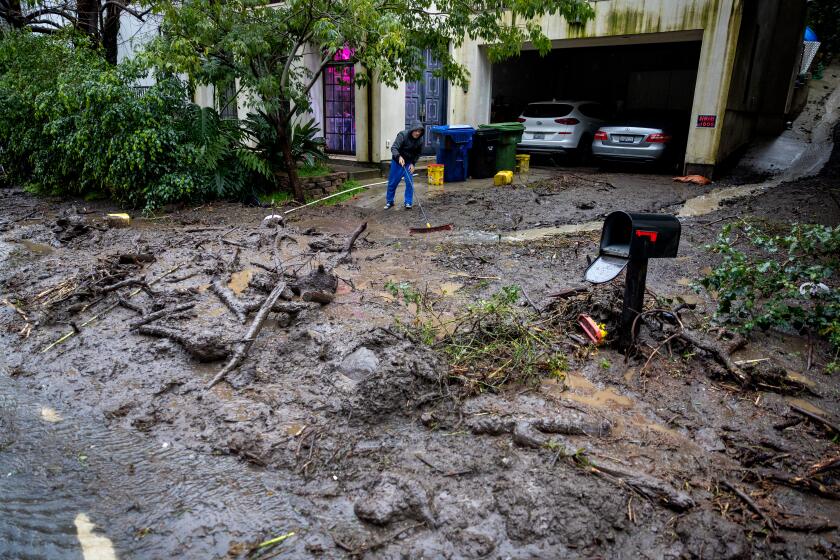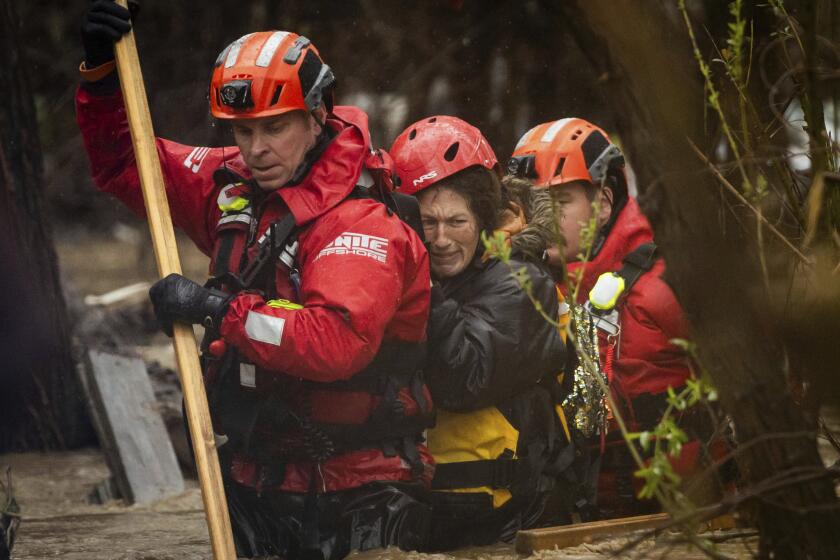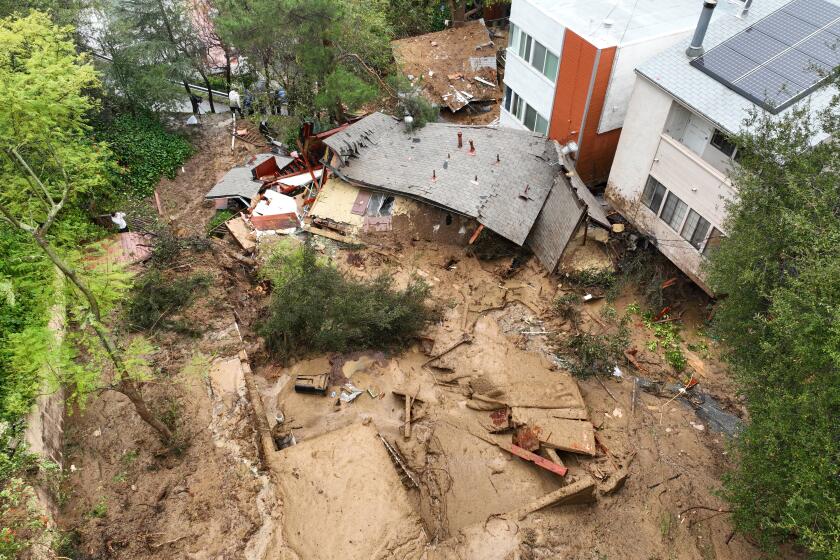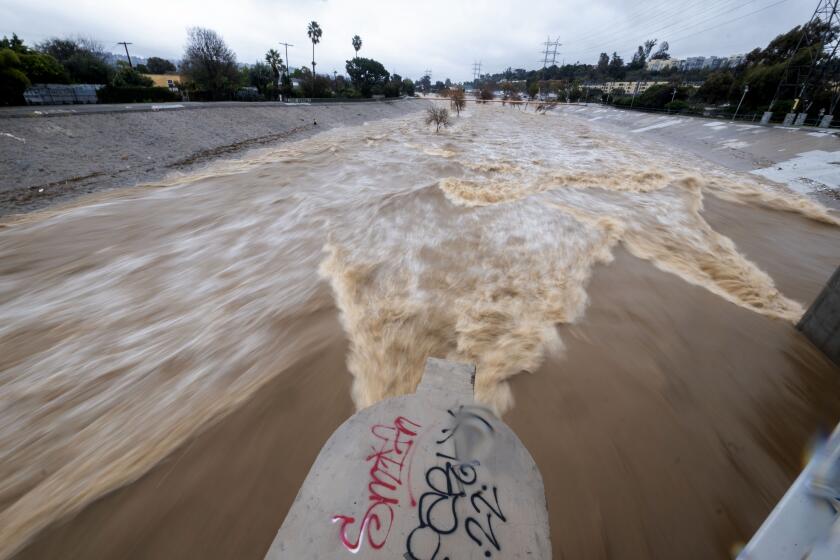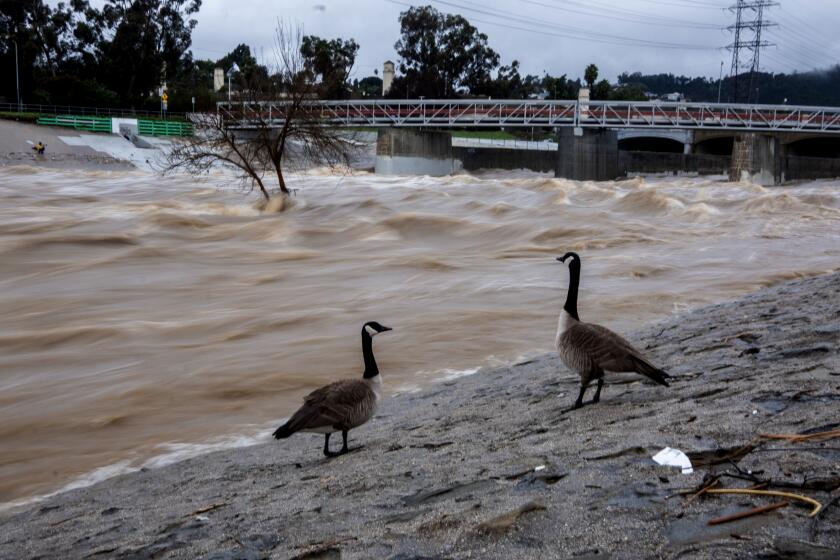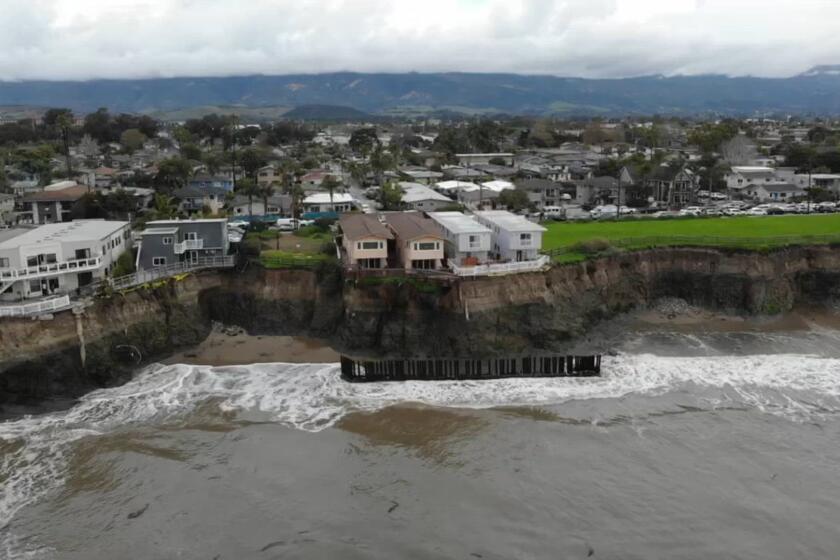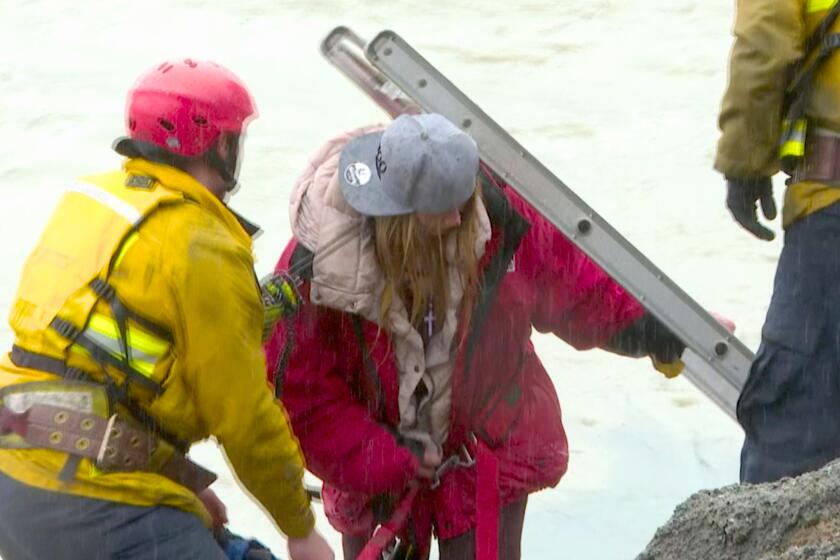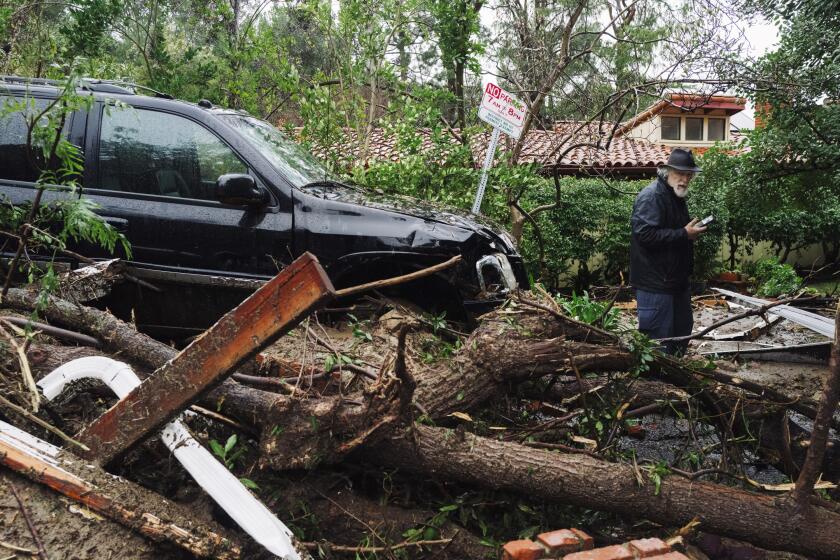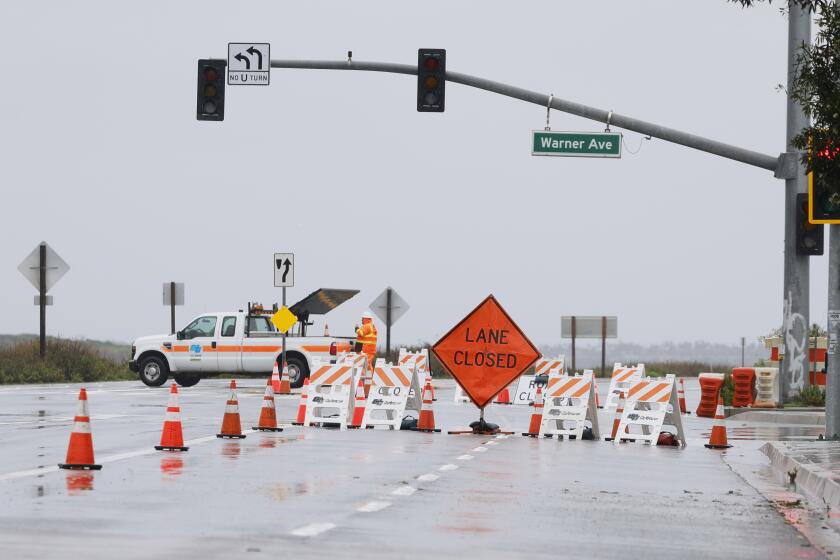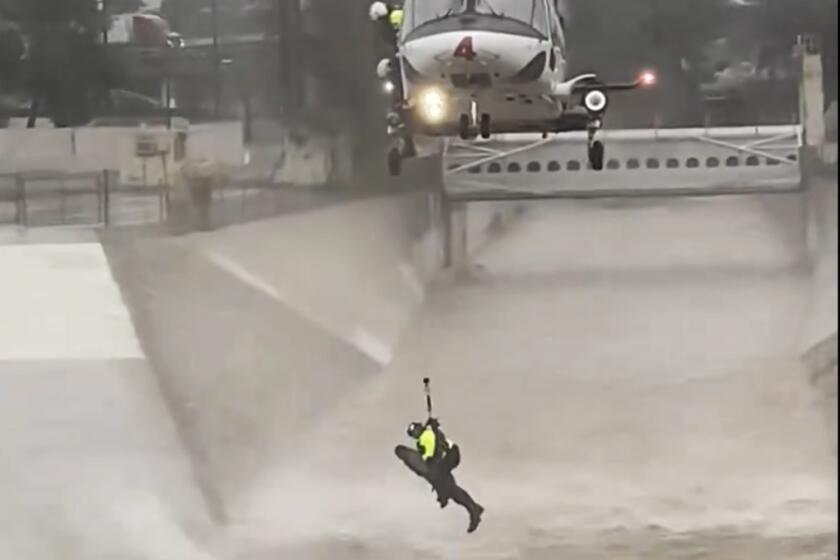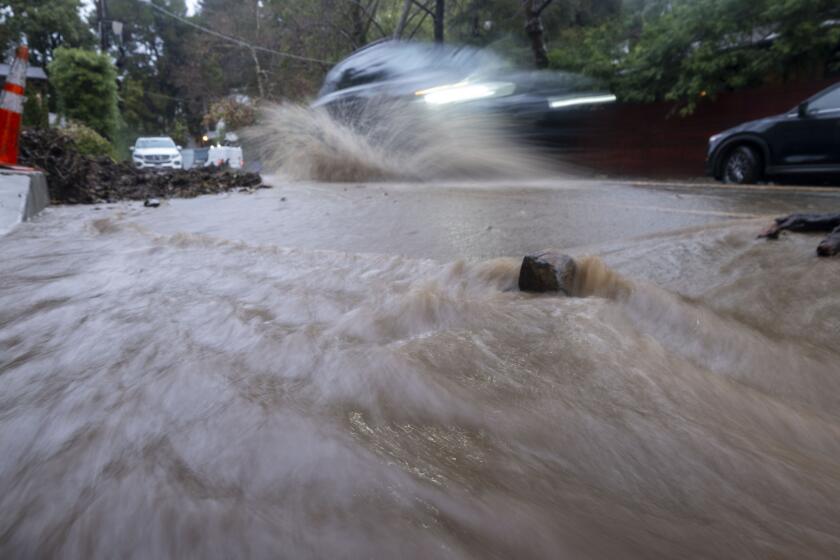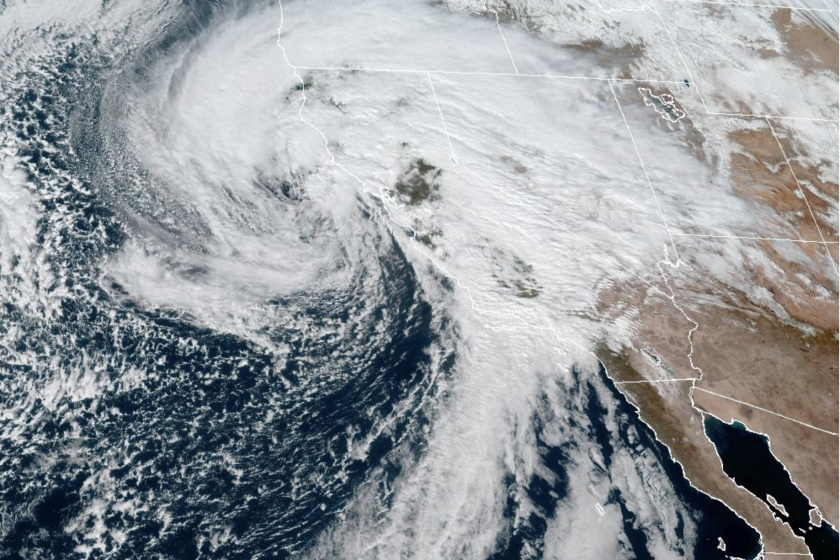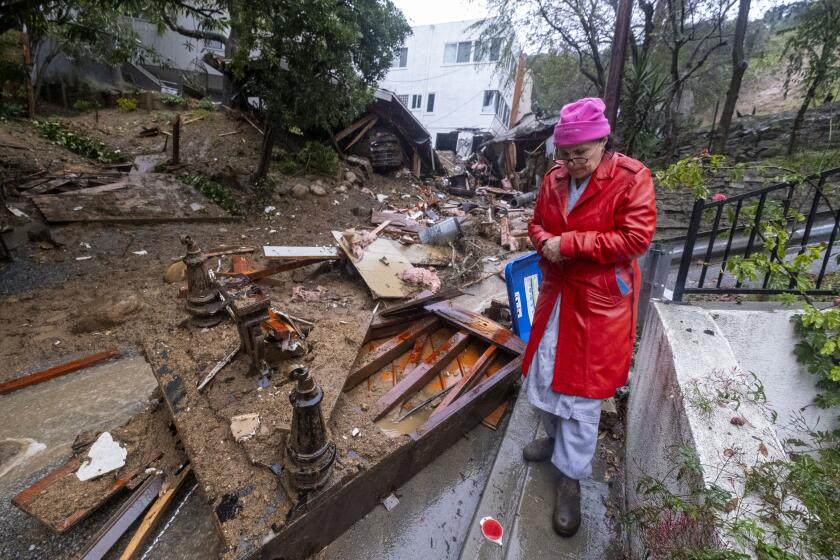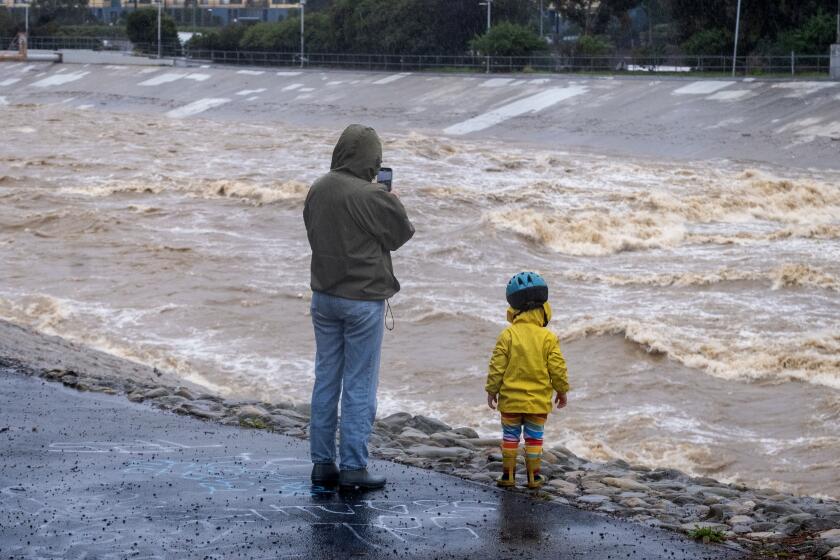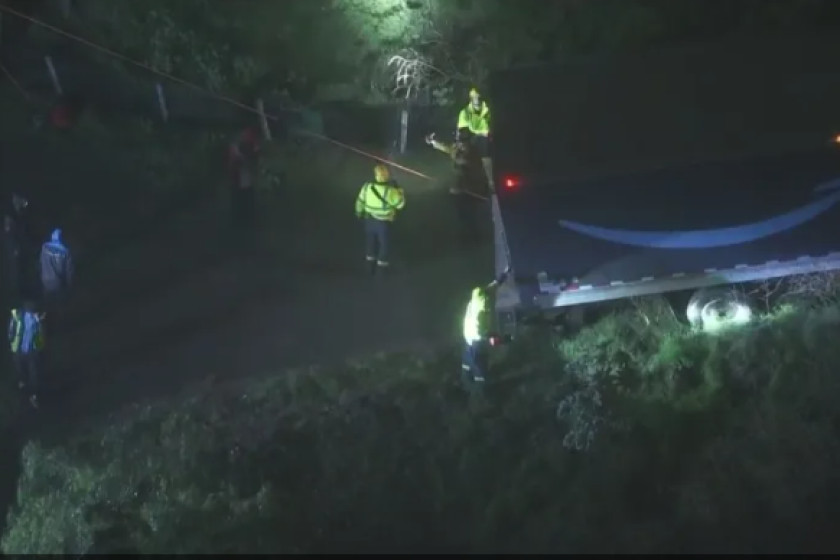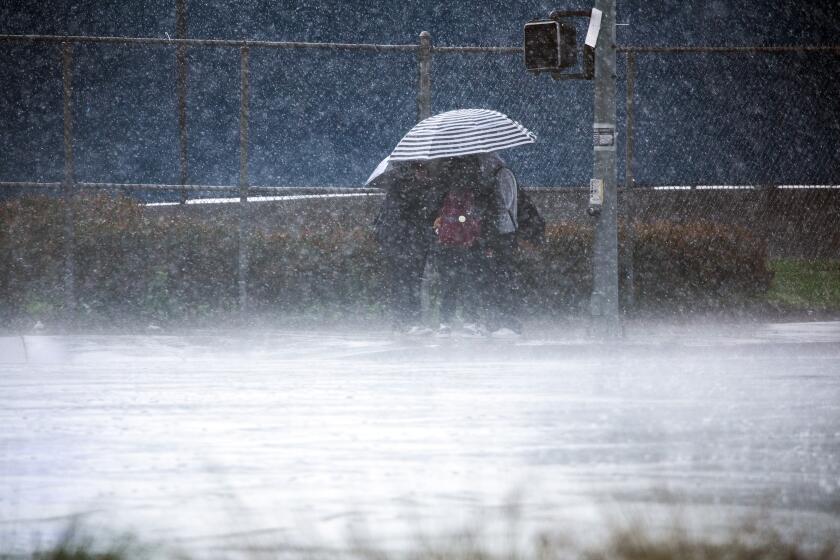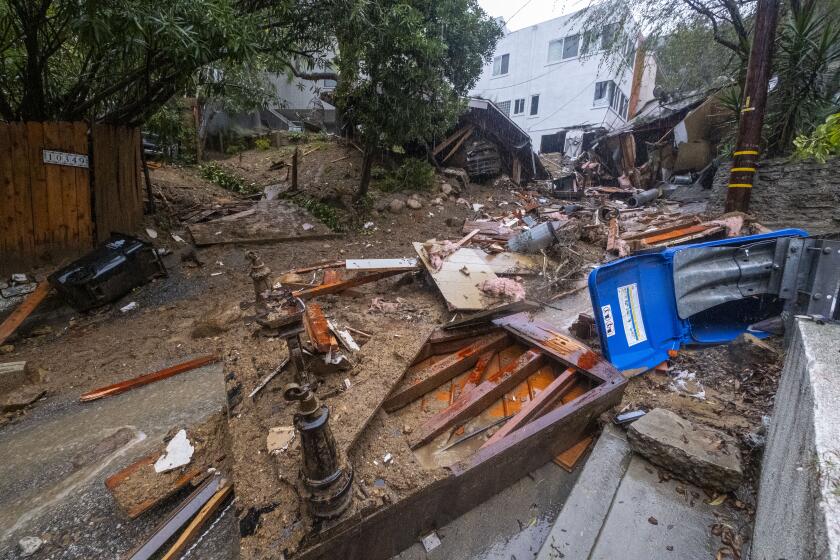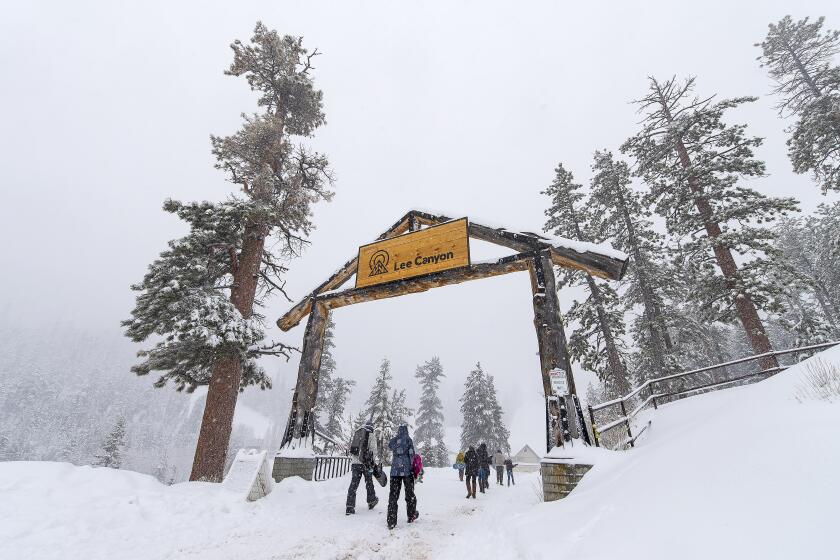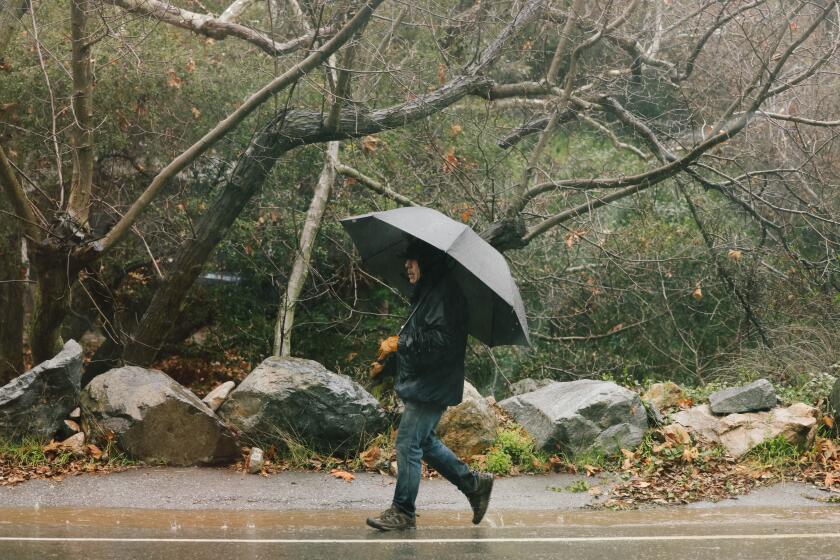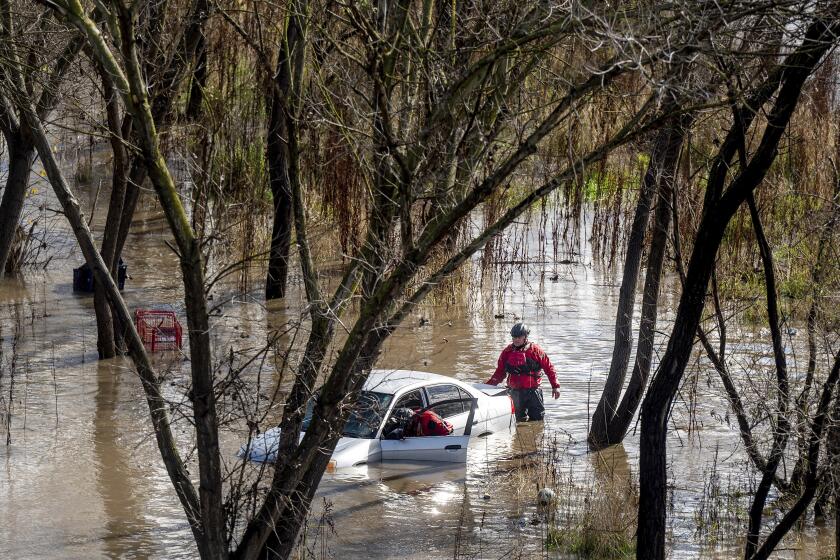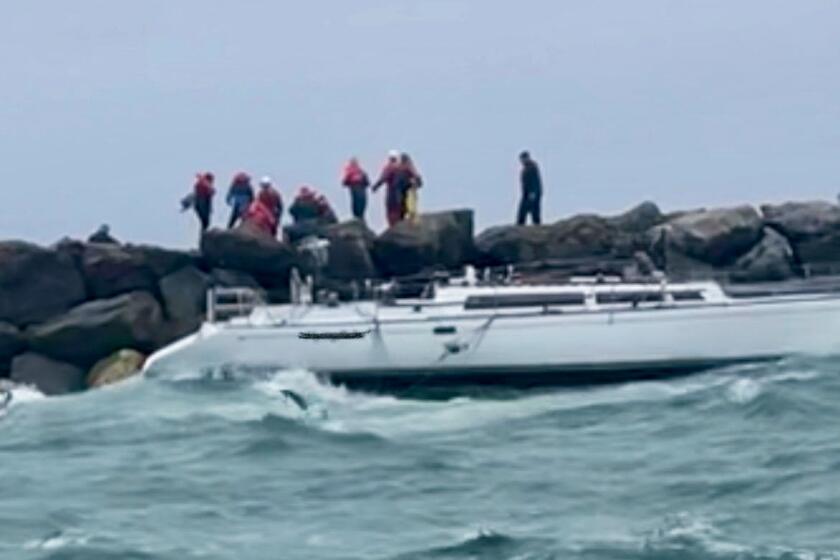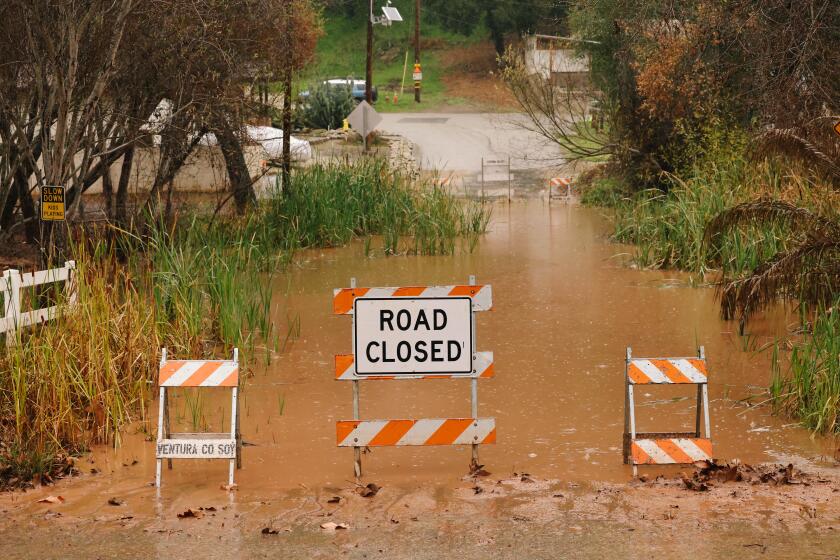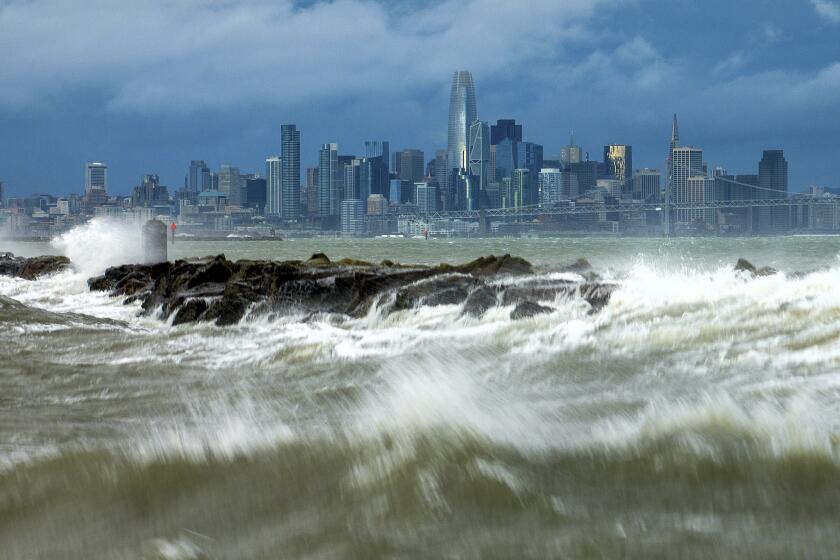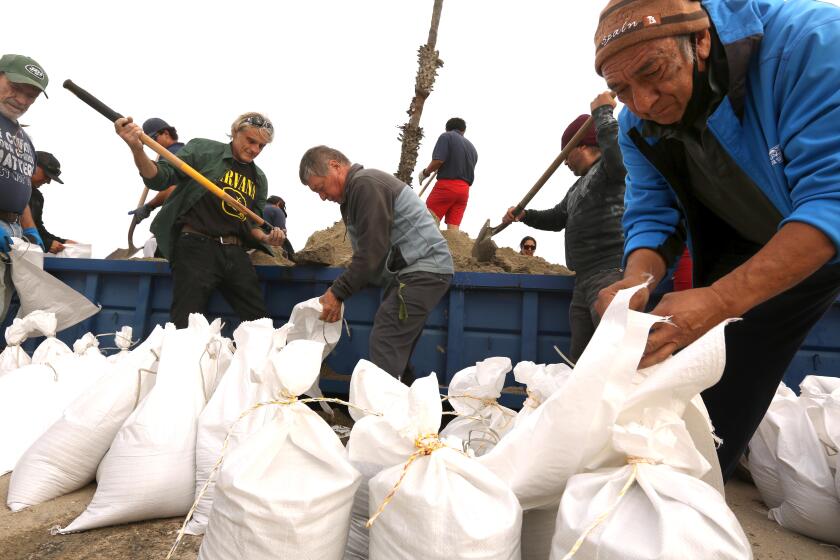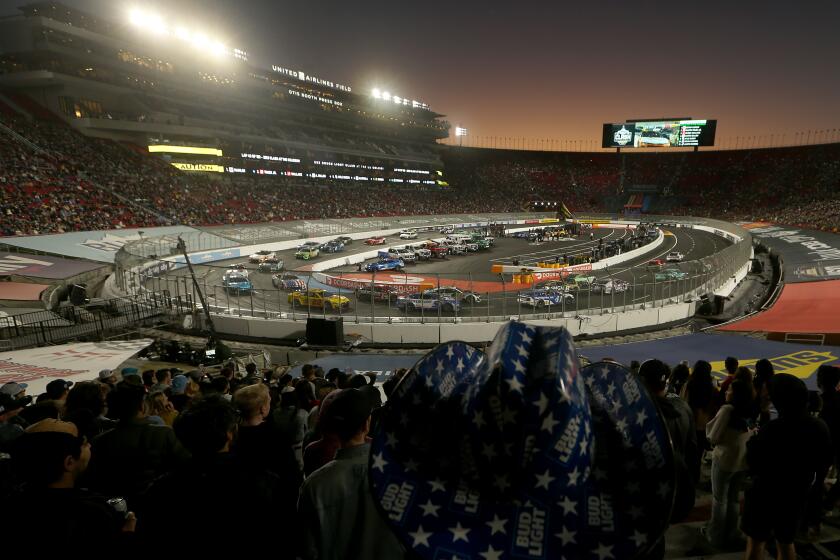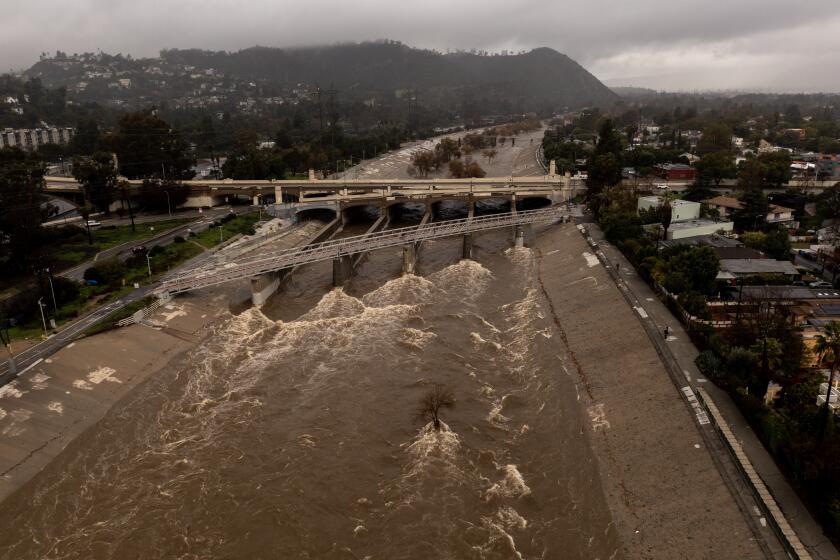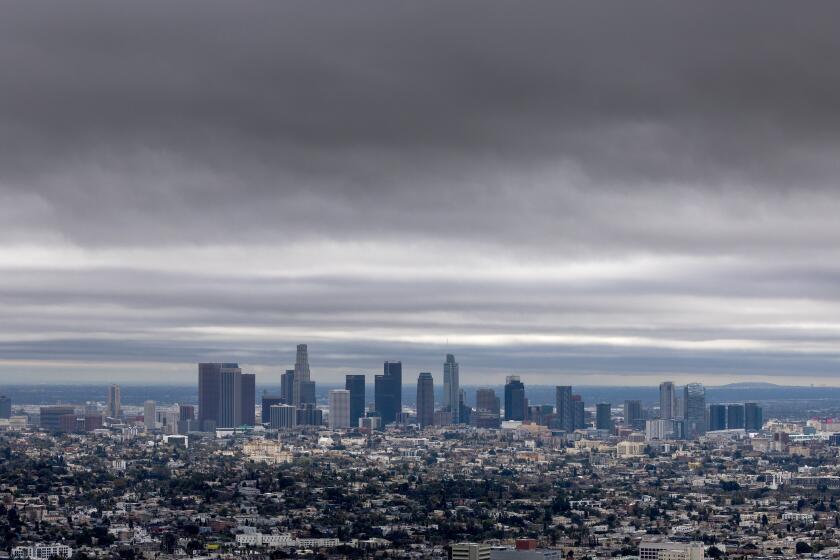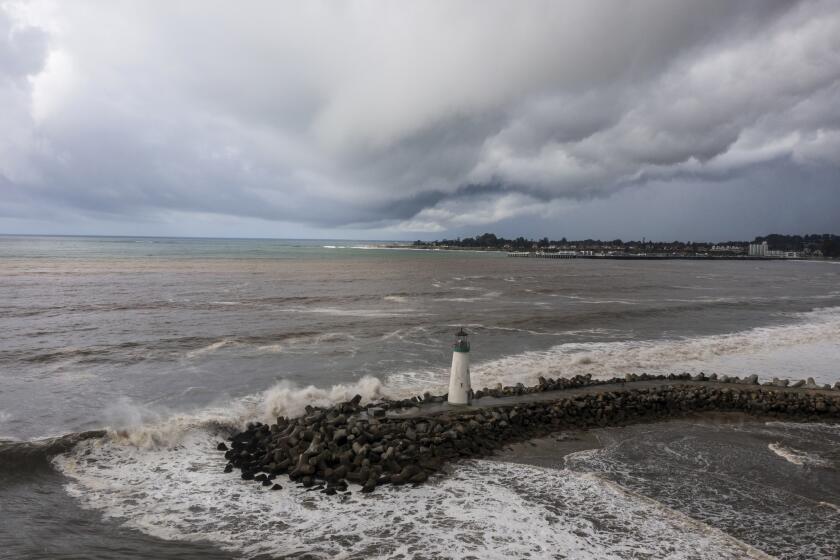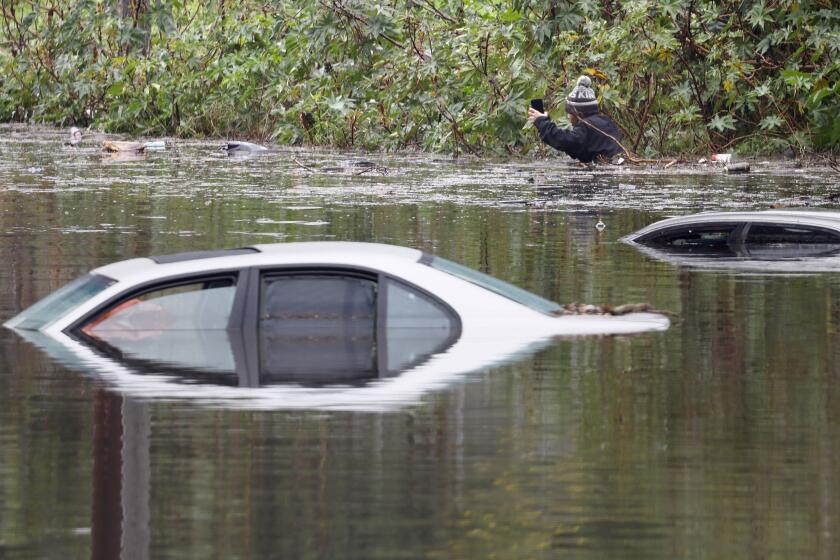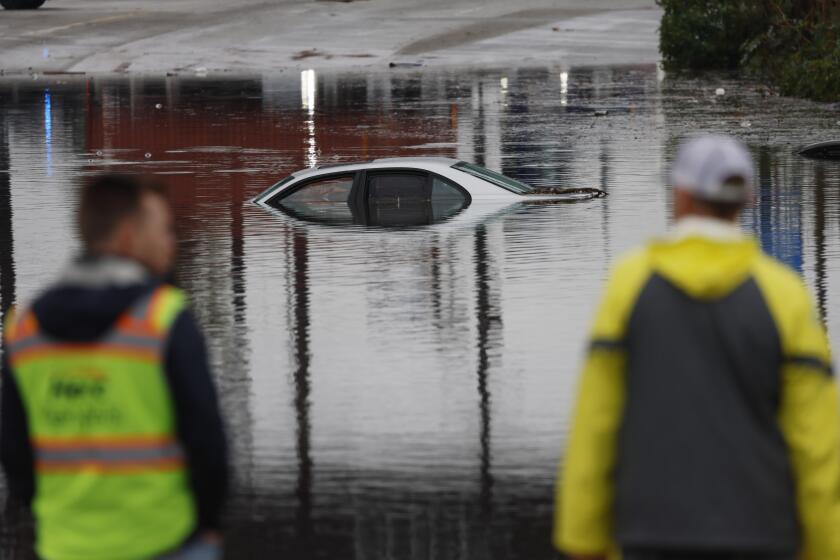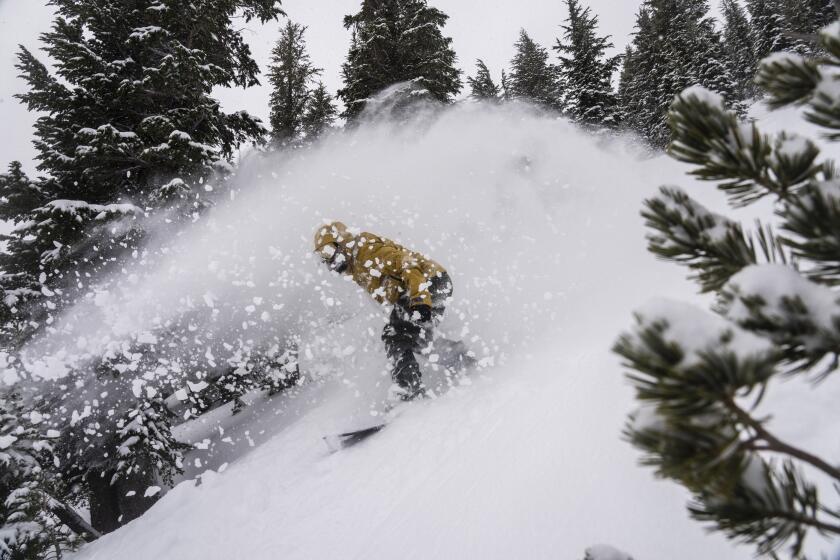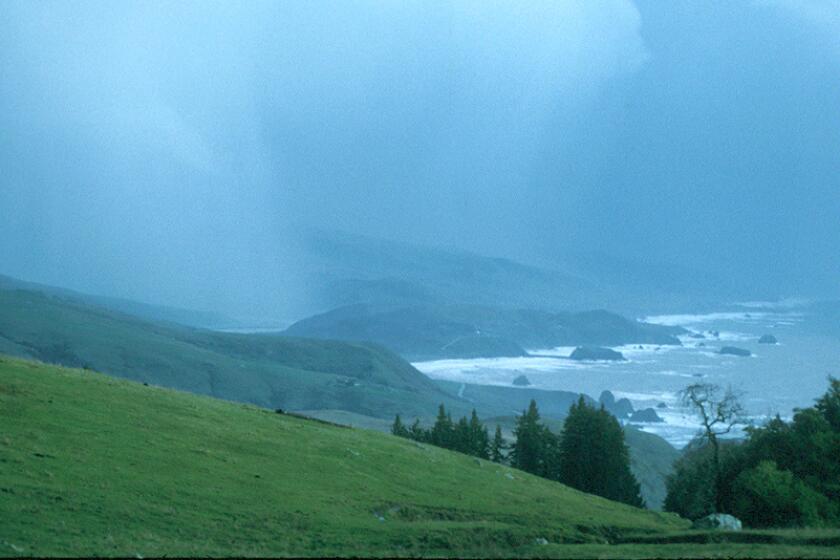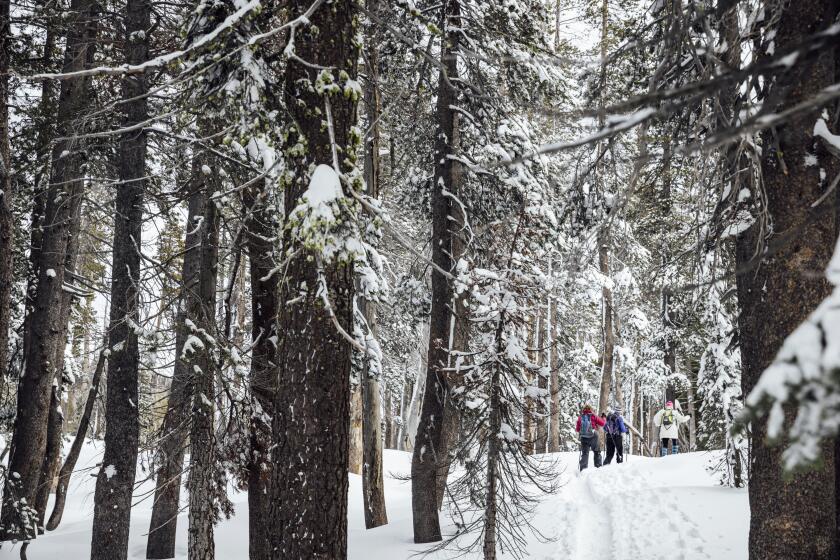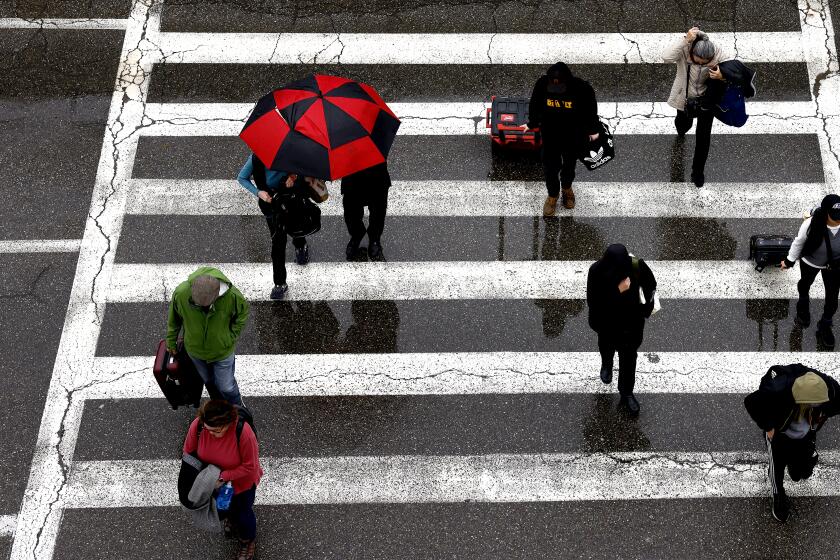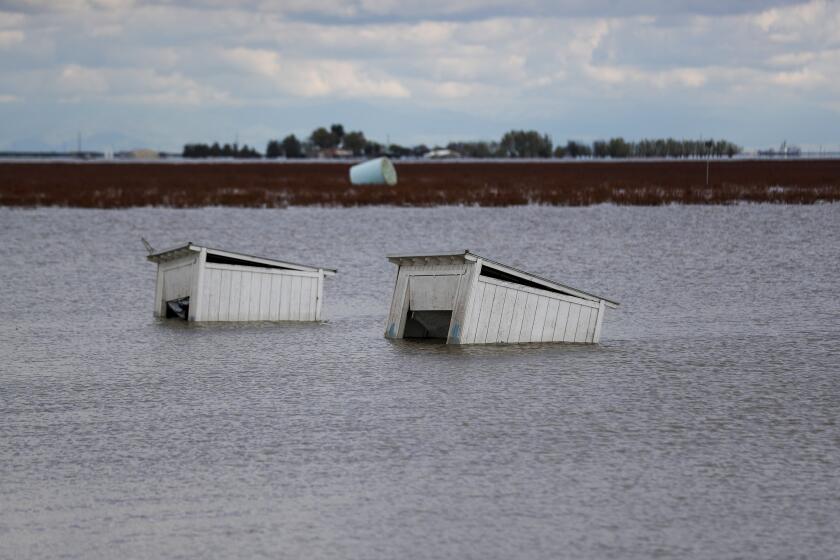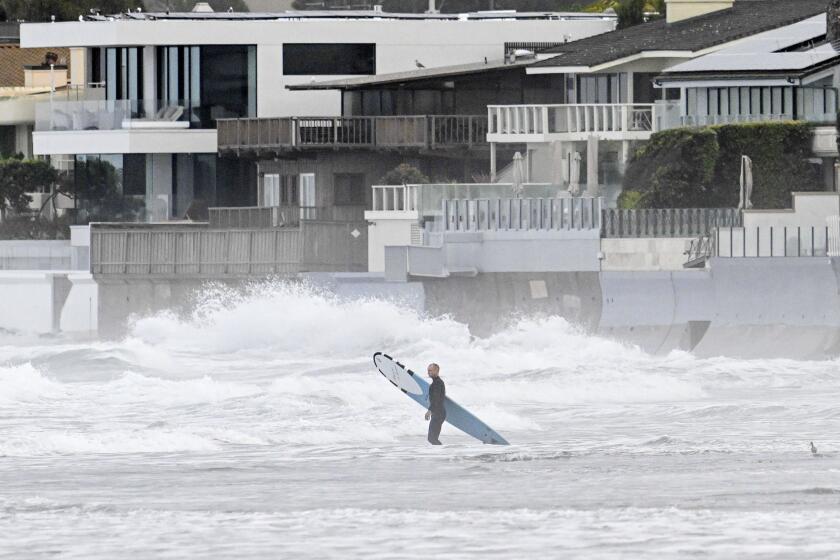California storm: After 5 days, the rain has stopped. In its wake, 9 dead, a trail of destruction
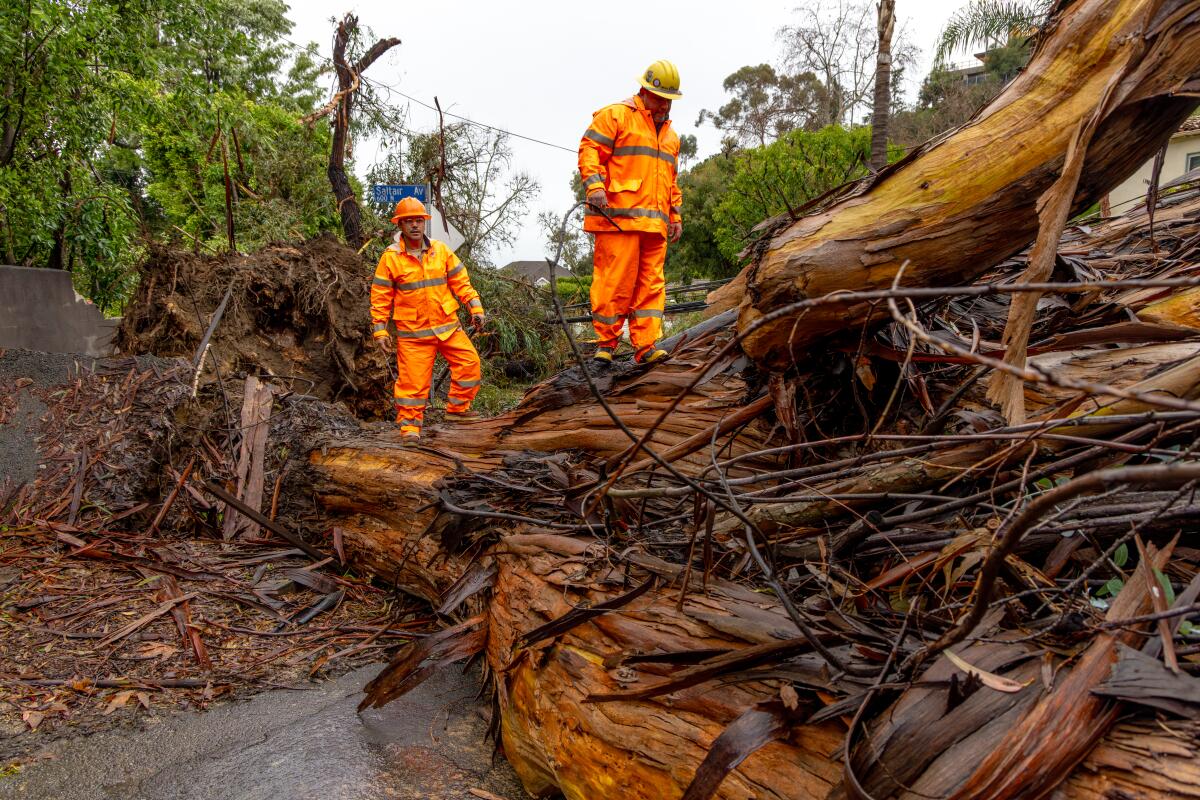
After five straight days, it stopped raining in California on Thursday.
The statewide death toll from the mega atmospheric river storm climbed to nine on Tuesday, and it included the first storm-related deaths in Southern California. Four were killed by fallen trees in Northern California and two died in car wrecks in the Southland, officials said.
Five U.S. Marines aboard a military helicopter that went down during stormy weather in the mountains outside San Diego are confirmed dead, a Marine commander said. It is not known whether the treacherous conditions played a role.
The deadly storm that smashed records in Southern California, with mud and debris flows inundating roads and forcing evacuations, is finally on the horizon after a smaller system brought some downpours and flash flooding warnings to the region Wednesday night. An inch of rain fell in some higher elevations and a quarter- or half-inch in Los Angeles County, which pushed five-day rainfall totals even higher, hitting more than 14 inches in some places, including Topanga and Cogswell Dam north of Monrovia, according to Mike Wofford, a National Weather Service meteorologist in Oxnard.
As of Thursday morning, downtown L.A. had received 9.03 inches since Saturday — more than half its average yearly rainfall of 14.25.
Southern California was hit hard Tuesday as the storm continued to linger over the region. The storm continued its push, two days after it parked itself over the L.A. metropolitan area, jump-starting what the National Weather Service called “one of the most dramatic weather days in recent memory.” It has caused flooding and mudslides — some of which ruined homes and forced evacuations.
As of Wednesday evening, L.A. authorities had responded to 562 mudslides, with more than 45 homes or buildings damaged by debris flows, including 15 homes that were red-tagged, according to Mayor Karen Bass’ office.
Evacuation orders or warnings were put in place in L.A., Ventura, Orange and San Bernardino counties.
Gov. Gavin Newsom declared a state of emergency in eight Southland counties: L.A., Orange, Riverside, San Bernardino, San Diego, San Luis Obispo, Santa Barbara and Ventura.
The storm packed a wallop across California, including flooding, water rescues, damaging winds and knocking out power in the San Francisco Bay Area and down the Central Coast.
About 1.4 million Pacific Gas & Electric customers statewide lost power during the storm. The bulk of the outages have affected Northern California, where powerful wind gusts toppled trees, sending them crashing onto electrical equipment and into homes.
Here’s our latest coverage:
- 1
After days of record-setting rainfall over Southern California, the region is expected to dry out over the next week. However more wet, winter weather could follow.
- 2
Woodland Hills, located in the San Fernando Valley, has had some of the hottest temperatures ever recorded in Los Angeles County. It also gets a lot of rain — sometimes over a foot — during storms.
- 3
During powerful winter storms, the swells at Belmont Shore in Long Beach can roar to life with all the force you’d find in fabled extreme sports hot spots like Maui’s North Shore. The mix of wind and waves creates epic conditions for kitesurfing.
- 4
The city was still working its way through 562 mudslides as of Wednesday evening. Burn scars, loose earth and improper construction are all factors.
- 5
About 30,000 PG&E customers remain without power as of Thursday morning following a destructive winter storm that felled trees and drenched California this week.
- 6
Human-caused climate is projected to bring wetter, more intense storms. Scientists explain what these shifts mean for California and the West.
- 7
Capturing rainfall is only one part of the L.A. River’s job. It is also a flood control channel that is critical to protecting lives and properties when stormwaters surge.
- 8
The military confirmed that five U.S. Marines aboard a helicopter that went down during stormy weather on a flight from Nevada to California are dead.
- 9
State officials have confirmed 9 people died in the storm, including four hit by trees in Northern California and at least two in car wrecks in Southern California.
- 10
Public satellites haven’t yet flown over the areas hit by the storm. These images are ‘simulating what the satellites would have seen.’
- 11
A new low pressure system will bring further rain and snow across Southern California late Wednesday, but there is finally some dry weather on the radar.
- 12
Rain breeds potholes in aging roads around Southern California. You can file a claim for damage your car incurs, but reimbursement is not guaranteed.
- 13
Some scoffed at the dire forecast. But meteorologists for Los Angeles really did accurately predict eye-popping rain totals, with downtown seeing 60% of its annual rain in three days.
- 14
Southern California rain totals from the last five days topped 14 inches in some areas, easily besting the average for the entire month of February.
- 15
Here are areas in L.A., Ventura, Orange, San Bernardino and Santa Barbara counties with evacuation orders or warnings in place.
- 16
Searchers have located a U.S. military helicopter that went missing en route from a base in Nevada to Marine Corps Air Station Miramar in San Diego.
- 17
Heavy rains have caused multiple sewage spills that sent waste flowing down major streets and into storm drain systems leading to the ocean.
- 18
The storm, which has dumped rain almost nonstop since Sunday, has been brutal for the more than 75,000 unhoused people in Los Angeles County.
- 19
As Californians face non-stop rain from an atmospheric river this week see how rainfall totals in your area compares to other regions and previous years.
- 20
Three hikers were rescued after spending a cold night on Mt. Baldy. They were experienced and followed basic rules that helped make the mission a safe rescue.
- 21
Officials confirmed 9 deaths in the storm statewide, as hazardous weather continued Tuesday, with mud and debris flows in east Los Angeles County.
- 22
Falling trees killed at least three people in Northern California as a winter storm walloped the state. The system is slowly moving across L.A. and Orange counties.
- 23
The storm fed off of unusually warm waters as it grew. It also reached “bomb cyclone” status as it neared California.
- 24
Los Angeles County flood control network withstands punishing rains -- for now
- 25
It’s time to stop complaining about imperfect clean energy solutions and start making them happen.
- 26
An apartment building balcony in Santa Barbara’s Isla Vista community cracked and is hanging off the edge of the bluff, which has been eaten away by coastal erosion over the past few decades.
- 27
A pregnant woman was rescued Tuesday morning from a quickly filling storm drain in Anaheim, according to the city Police Department.
- 28
Many are concerned about Los Angeles County’s flood control system. Though it remains strong for now, how much more can it sustain?
- 29
The atmospheric river parked over Southern California has caused devastating debris flows in posh neighborhoods in the region’s canyons and hillsides.
- 30
In Ventura County, about six miles of PCH is closed from Las Posas Road to Sycamore Canyon Road after some of the road washed away due to “storm erosion,” according to Caltrans.
- 31
A man’s decision to leap into the churning water of the Pacoima Wash to save his dog led to a dramatic rescue — of the man, not the dog, who climbed out on his own.
- 32
Here are areas in L.A, Ventura, Orange and San Bernardino counties with evacuation orders or warnings in place. Sand and sand bags are available.
- 33
The deadly storm that is walloping California with hurricane-force winds and record amounts of rainfall was fueled in part by the powerful weather phenomenon known as a “bomb cyclone,” the National Weather Service said.
- 34
Los Angeles’ upscale canyon and hillside communities were particularly hard hit by mudslides and flooding from record rain
- 35
Given the size and sprawl of the school system (about 900 campuses), Supt. Alberto Carvalho said the decision to keep campuses open was the right one.
- 36
Around 8 p.m. Monday, amid the continuing storm, the truck became ‘precariously perched’ on West Rose Hill Drive near Montecito Heights.
- 37
LAUSD’s early strategy, keeping schools open, is a sharp departure from the quick decision to close schools as Tropical Storm Hilary approached last August.
- 38
Probably not. That’s because in Los Angeles County, home to nearly 10 million people, there are just 14,580 flood insurance policies on the books.
- 39
The same severe storm system that’s moving through California has caused an avalanche at a ski resort in southwestern Nevada, and “several people” are missing, according to Las Vegas police.
- 40
Flows of mud have damaged some homes, forcing some residents to evacuate in Los Angeles. Life-threatening landslides and flooding continue across Southern California.
- 41
After being battered by record rainfall Sunday and Monday morning, Southern California is far from out of the woods with this major storm.
- 42
Chilling rain, swirling gray clouds and blustery winds rolled into Southern California on Sunday as what was anticipated as the strongest storm of the season promised near-record rainfall and flash flooding through Tuesday.
- 43
Nineteen people were rescued after the mast on their 40-foot boat broke amid high winds and crashed during Sunday’s storm.
- 44
The forecast just got worse for Orange County, the Inland Empire and mountain communities.
- 45
Forecasters said the Los Angeles area, where the system could park for a long time Sunday into Monday, was of major concern.
- 46
“Especially, stay off the freeways” Monday if possible, the National Weather Service office for L.A. said, due to the risk of flooding from the storm.
- 47
Officials are expecting life-threatening damage and issuing evacuation orders or warnings in parts of Los Angeles, Ventura and Santa Barbara counties.
- 48
The dangerous, intense storm will move into Southern California this weekend, lingering for days and bringing the potential for widespread flooding, power outages, downed trees and debris flows.
- 49
NASCAR made the historic decision to move the Busch Light Clash and Mexico Series racing at the Coliseum from Sunday to today in order to avoid rain.
- 50
L.A. was built to protect people from storms, but that protection has actually made us less climate resilient.
- 51
Heavy, sustained rains are forecast across Southern California on Sunday and Monday, bringing almost double Thursday’s rain with damaging flooding possible.
- 52
There’s plenty of snow to go around. Forecasts show that a strong storm system expected to arrive over the weekend could bring more snow into the mountain communities and linger into next week.
- 53
Warm ocean waters are upping the odds of significant downpours and offering a preview of the state’s future in a warming world, experts say.
- 54
Experts predict the second round of atmospheric rivers to be “life-threatening.” Here’s how you can prepare.
- 55
Heavy rainfall moved across Southern California on Thursday, causing flooding, road closures and some water rescues. But all eyes are focused on the next, stronger storm.
- 56
A major atmospheric river storm is bringing heavy rain, strong wind and significant snowfall across California.
- 57
Fire crews, swift water rescue teams and other first responders have been moving into place throughout the state in preparation for the storms.
- 58
Atmospheric rivers are descending on Southern California. Here’s how to prepare and stay safe before and during the storms, heavy rain and potential flooding.
- 59
Affected by warm conditions, California’s snowpack remains far below average. Approaching storms are forecast to bring more snow to the Sierra Nevada.
- 60
The storm expected to hit California this week will bring significant rainfall, which could cause minor flooding across the state.
- 61
Last winter brought record rains. This one is extremely wet, too.
- 62
Two ‘thousand-year events’ pummeled San Diego and Ventura. Officials say El Niño, climate change and seasonal patterns make similar storms more likely.
